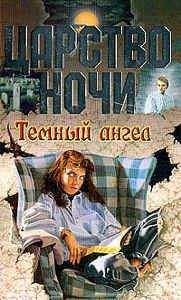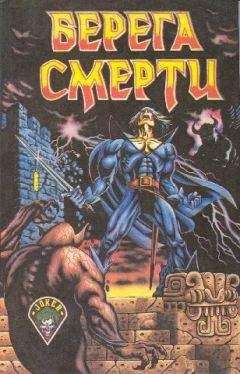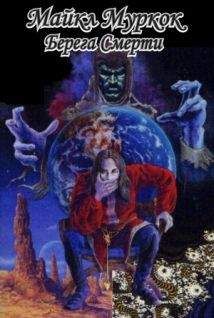Майкл Муркок - Английский язык с М. Муркоком
Corum frowned and went to the cool water of the river to wash his face and hands. He paused, listening again. A thump. A rattle. A clank. He thought he heard a voice shouting further down the valley and he peered in that direction and thought he saw something moving.
Corum strode back (зашагал назад; to stride — шагать /большими шагами/, перешагнуть; to stride-strode-stridden) to where he had left his gear (/туда/, где он оставил свои вещи; gear — одежда, имущество, снаряжение) and he picked up his helmet (подобрал свой шлем), settling it on his head (надел его на голову), fixed his sword's scabbard to his belt (пристегнул ножны меча к поясу; to fix — устанавливать, крепить; belt — пояс, ремень; полоса), looped the axe on to his back (закрепил топор на спине; to loop — делать петлю, скреплять петлей). Then he began to saddle the horse (затем принялся седлать коня) as it lapped the river (когда тот пил из речки; to lap — свертывать, жадно пить, глотать; плескаться /о волнах/).
The sounds were stronger now (звуки были громче теперь) and, for some reason (по какой-то причине), Corum felt disquiet touch his mind (Корум почувствовал, /как/ беспокойство тронуло его душу; mind — ум, рассудок, душа). He mounted his horse (он сел на своего коня; to mount — подниматься, восходить; садиться /на лошадь, велосипед, в машину/) but continued to watch (но продолжал наблюдать).
scabbard [ˈskæbəd] disquiet [dɪsˈkwaɪət] mounted [ˈmauntɪd] continued [kənˈtɪnju:d]
Corum strode back to where he had left his gear and he picked up his helmet, settling it on his head, fixed his sword's scabbard to his belt, looped the axe on to his back. Then he began to saddle the horse as it lapped the river.
The sounds were stronger now and, for some reason, Corum felt disquiet touch his mind. He mounted his horse but continued to watch.
Up the valley came a tide of beasts and vehicles (вверх = из долины шел поток животных и повозок; tide — прилив, отлив, поток, течение; vehicle — транспортное средство). Some of the creatures (некоторые из существ) were clothed in iron, fur and leather (были одеты в доспехи, мех и кожу; iron — железо, черный металл; любые предметы из железа). Corum guessed that this was a Mabden herd (догадался, что это было стадо мабденов). From the little he had read of Mabden habits (из /того/ немногого, /что/ он читал о мабденских привычках), he knew the breed (он знал, /что/ племя /мабденов/; breed — племя, порода, род) to be for the most part (является главным образом) a migratory species (мигрирующим видом), constantly on the move (постоянно в движении; on the move — на ходу, на ногах, в движении); as it exhausted one area (когда оно истощало один участок; to exhaust — исчерпывать, полностью расходовать; изнурять) it would move on (оно двигалось дальше), seeking fresh game and wild crops (ища новую дичь и дикорастущие культуры; to seek — искать, разузнавать; to seek-sought-sought; fresh — свежий, новый; crops — зерновые культуры). He was surprised to note (он был удивлен заметить) how much like Vadhagh arms and armour (насколько похожими на вадагские оружие и доспехи) were the swords (были мечи), shields and helmets (щиты и шлемы) worn by some of the Mabden (носимые некоторыми из мабденов; to wear-wore-worn).
Closer they came (ближе они подходили) and still Corum observed them (и все-таки Корум наблюдал за ними; to observe — вести научные наблюдения, следить) with intense curiosity (с большим любопытством; intense — сильный, глубокий, напряженный), as he would study any unusual beast (как он изучал любое /другое/ необычное животное; unusual — необычный, странный, редкий) he had not previously seen (/которое/ раньше не видел).
vehicle [ˈvi:ɪkl] creatures [ˈkri:ʧəz] iron [ˈaɪən] guessed [ɡest] migratory [ˈmaɪɡrət (ə) rɪ] exhausted [ɪɡˈzɔ:stɪd] armour [ˈɑ:mə] intense [ɪnˈtens] curiosity [, kjuərɪˈɔsɪtɪ]
Up the valley came a tide of beasts and vehicles. Some of the creatures were clothed in iron, fur and leather. Corum guessed that this was a Mabden herd. From the little he had read of Mabden habits, he knew the breed to be for the most part a migratory species, constantly on the move; as it exhausted one area it would move on, seeking fresh game and wild crops. He was surprised to note how much like Vadhagh arms and armour were the swords, shields and helmets worn by some of the Mabden.
Closer they came and still Corum observed them with intense curiosity, as he would study any unusual beast he had not previously seen.
This was a large group (это была большая группа), riding in barbarically decorated chariots (ехавшая в грубо отделанных колесницах; barbaric — грубый, варварский, неотесанный; decorated — украшенный, отделанный) of timber and beaten bronze (из дерева и кованой бронзы; beaten — битый; кованый; to beat — бить, биться /о сердце/, колотить; to beat-beat-beaten), drawn by shaggy horses (/которые/ тащили косматые лошадки; to draw — тащить, тянуть, растягивать; to draw-drew-drawn) with harness of leather (c упряжью из кожи) painted in dull reds, yellows and blues (раскрашенной в тусклые красные, желтые и синие /цвета/; to paint — писать красками, окрашивать). Behind the chariots came waggons (позади колесниц шли повозки; wag (g) on — тележка, повозка, фургон), some open (одни открытые) and some with awnings (другие — с тентами = крытые; awning — навес, тент). Perhaps these carried females (возможно, эти /крытые/ перевозят самок), Corum thought (подумал Корум), for there were no females to be seen elsewhere (так как никаких самок не было видно нигде; elsewhere — где-нибудь еще, в другом месте).
The Mabden had thick, dirty beards (у мабденов были густые грязные бороды), long sweeping moustaches (длинные обвислые/пышные усы; sweeping — широкий, размашистый; to sweep — подметать, смахивать, чистить; to sweep-swept-swept) and matted hair (и спутанные волосы) flowing out from under their helmets (вытекавшие = выбивавшиеся из-под их шлемов). As they moved (когда они двигались = при движении), they yelled at each other (они кричали друг на друга) and passed wineskins from hand to hand (и передавали бурдюки с вином из рук в руки; wineskin: wine — вино, skin — кожа, шкура, мех; to pass — идти, проходить; переходить /из одних рук в другие/). Astonished (изумленный), Corum recognised the language (опознал этот язык) as the common tongue of the Vadhagh and the Nhadragh (как общий язык вадагов и надрагов; tongue — язык, язычок /орган/; речь), though much corrupted and harshened (хотя /и/ очень искаженный и грубый; to corrupt — портить, развращать, искажать; to harshen — становиться резким, делать резким). So the Mabden had learned (значит, мабдены выучили) a sophisticated form of speech (сложный вид языка; speech — речь, язык, диалект).
chariot [ˈʧærɪət] harness [ˈhɑ:nɪs] awning [ˈɔ:nɪŋ] beard [bɪəd] moustaches [məsˈtɑ:ʃɪz] language [ˈlæŋɡwɪʤ] tongue [tʌŋ]
This was a large group, riding in barbarically decorated chariots of timber and beaten bronze, drawn by shaggy horses with harness of leather painted in dull reds, yellows and blues. Behind the chariots came waggons, some open and some with awnings. Perhaps these carried females, Corum thought, for there were no females to be seen elsewhere.
The Mabden had thick, dirty beards, long sweeping moustaches and matted hair flowing out from under their helmets. As they moved, they yelled at each other and passed wineskins from hand to hand. Astonished, Corum recognised the language as the common tongue of the Vadhagh and the Nhadragh, though much corrupted and harshened. So the Mabden had learned a sophisticated form of speech.
Again came the unaccountable sense of disquiet (снова пришло необъяснимое чувство беспокойства). Corum backed his horse into the shadows of the trees (заставил коня отступить в тень деревьев; to back — поддерживать, подкреплять; двигать/ся/ в обратном направлении, пятиться), continuing to watch (продолжая наблюдать).
And now he could see (теперь он мог видеть) why so many of the helmets and weapons (почему так много шлемов и оружия) were familiar (были знакомы /ему/).
They were Vadhagh helmets (они были вадагскими шлемами) and Vadhagh weapons.
Corum frowned (насупился). Had these been looted (были ли эти /предметы/ унесены; to loot — грабить, уносить добычу) from some old abandoned Vadhagh castle (из какого-то старого заброшенного вадагского замка)? Were they gifts (были ли они подарками = получены в подарок)? Or had they been stolen (или они были украдены; to steal-stole-stolen)?



